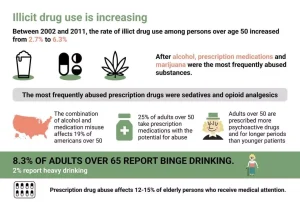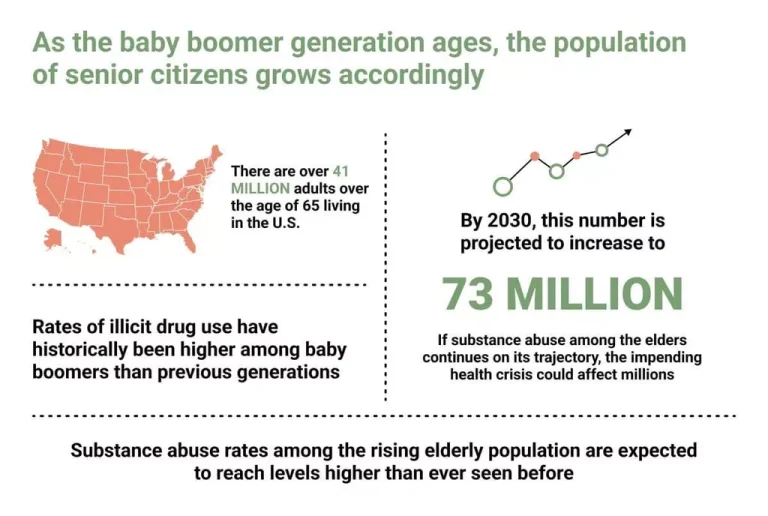
When a person takes a prescription medication in a larger dose or more often than intended or for a condition they do not have, it affects the same areas of the brain as illicit drugs and poses the same risk of addiction. People with substance use disorders don’t lack willpower; substance use changes the brain and overrides willpower through physiological processes. While someone might make an initial choice to experiment with drugs or alcohol, a substance abuse disorder is not a choice. Based on this data, it is clear that substance use disorders are far more common than many people realize. Providing compassionate care is key to countering the ongoing public health crisis.
Myth 3: People With Substance Use Disorders Lack Willpower

Understanding these elements can foster better empathy and support for those facing addiction issues. Waiting until you hit ‘rock bottom’ before seeking treatment isn’t a good decision. You don’t need to lose everything in your life to recover, and waiting myths about addiction and recovery until your addiction destroys the rest of your life may be too late.
Identifying the Person Beyond the Addiction
- It can lead to physical dependence, mental health problems, and fatal overdoses.
- That said, there’s also a lot of data about alcoholics and drug addicts that are simply wrong.
- The notion that an individual must hit “rock bottom” before they can begin to recover from addiction is a dangerous and misleading myth.
- Addressing and exploring the myths about addiction helps to create a more compassionate, more effective response to this complex issue.
Addiction is a chronic, relapsing condition driven by changes in brain circuitry, particularly in areas controlling reward, stress, and decision-making. While some people seek help after experiencing dire consequences, many others can and do get help from an intervention after listening to the advice of family, coworkers, and others. Waiting a longer time, however, increases damage done to the person’s relationships, job, and health and also strengthens the relationship between the drug https://ecosoberhouse.com/ and the person. Over my 50-year career as an addiction researcher, these are the most common misconceptions I’ve heard about people with alcohol and drug addictions. In modern rehab centers, medication-assisted treatment is a common practice. To some, using prescription medication during addiction treatment might seem counterintuitive.

Myth 8: All Treatments Are Effective
Safe medical treatments have changed alcohol use disorder (AUD), diminishing alcohol cravings and preventing relapse with disulfiram, acamprosate, and naltrexone. In AUD, MATs are used in fewer than 8 percent of cases—the real problem. Alcohol is legal but is just as addictive and harmful as other substances. It can lead to physical dependence, mental health problems, and fatal overdoses.

- So, let’s embark on a journey to challenge our preconceptions and deepen our understanding of this critical issue.
- People actively involved in AA often complain that their friends ask them why they are not cured yet since they go to meetings all the time.
- All condition, treatment and wellness content is medically reviewed by at least one medical professional ensuring the most accurate information possible.
It is crucial to recognize that addiction is a chronic disease that can affect anyone, regardless of background or circumstances. Early intervention, comprehensive treatment, and ongoing support are essential components of a successful recovery plan. The truth is that relapse is a common part of the recovery process and should be viewed as an opportunity to learn and grow rather than a failure. A common misconception surrounding addiction recovery is that relapse is a sign of treatment failure or a lack of commitment to sobriety.

However, addiction is a widespread issue that transcends these stereotypes. The data illustrates that addiction can affect individuals regardless of their financial stability or background. Additionally, factors like mental health and environment play significant roles in addiction risk. Addressing myths and misconceptions about addiction is critical in promoting awareness and empathy.
- But addiction does not discriminate by age, ethnicity, gender, or socioeconomic background.
- Although their individual stories may be different, all are united in their desire to break free from addiction.
- However, people addicted to stimulants still need rehydration, rest, and refeeding as the drug leaves the body.
- Long before drugs enter the picture, there are neurobiological differences in people who become addicted compared to those who do not become addicted.
